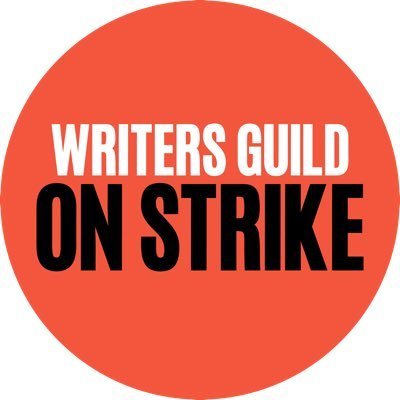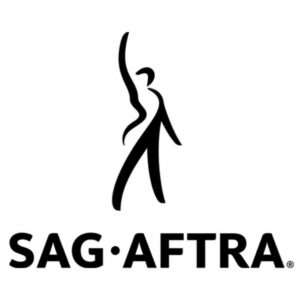
Late Monday evening, May 1, 2023 negotiations between the WGA and AMPTP (the Alliance of Motion Picture and Television Producers) ended and with only three hours left on their current contract the WGA went on strike, 12:01 AM PT, 3:01AM ET on Tuesday, May 2. Picket lines in LA were up by 1 PM PT. The WGA Membership is ~20,000 and the AMPTP Membership is 350-plus TV and film production companies.
At 7:59 PM PT on Monday, May 1, 2023 AMPTP stated:
“Negotiations between the AMPTP and the WGA concluded without an agreement today.”
The WGA announcement to its membership sent out publicly on Monday May 1 had more detail:
We have not reached an agreement with the studios and streamers. We will be on strike after the contract expires at midnight.
Your WGA Negotiating Committee spent the last six weeks negotiating with Netflix, Amazon, Apple, Disney, Discovery-Warner, NBC Universal, Paramount and Sony under the umbrella of the Alliance of Motion Picture and Television Producers (AMPTP).
Over the course of the negotiation, we explained how the companies’ business practices have slashed our compensation and residuals and undermined our working conditions. Our chief negotiator, as well as writers on the committee, made clear to the studios’ labor representatives that we are determined to achieve a new contract with fair pay that reflects the value of our contribution to company success and includes protections to ensure that writing survives as a sustainable profession. We advocated on behalf of members across all sectors: features, episodic television, and comedy-variety and other non-prime-time programs, by giving them facts, concrete examples, and reasonable solutions. Guild members demonstrated collective resolve and support of the agenda with a 97.85% strike authorization.
Though we negotiated intent on making a fair deal—and though your strike vote gave us the leverage to make some gains—the studios’ responses to our proposals have been wholly insufficient, given the existential crisis writers are facing. The companies’ behavior has created a gig economy inside a union workforce, and their immovable stance in this negotiation has betrayed a commitment to further devaluing the profession of writing. From their refusal to guarantee any level of weekly employment in episodic television, to the creation of a “day rate” in comedy variety, to their stonewalling on free work for screenwriters and on AI for all writers, they have closed the door on their labor force and opened the door to writing as an entirely freelance profession. No such deal could ever be contemplated by this membership.
Therefore, earlier today the Negotiating Committee unanimously rejected the AMPTP’s final offer before deadline and recommended to the WGAW Board and WGAE Council the issuance of a strike order. Based on that recommendation, the Board and Council unanimously voted to strike after the current MBA’s expiration at midnight tonight.
A strike by the WGAW and WGAE against all companies signatory to the 2020 MBA will begin on Tuesday, May 2, 2023 at 12:01 am PT/3:01 am ET.
We must now exert the maximum leverage possible to get a fair contract by withholding our labor. All WGA members are obligated to follow the strike rules. The FAQ about the strike rules includes forms to assist with notice requirements as well as contact information for Guild staff to provide additional guidance.
Members of the Negotiating Committee, Board and Council will be out with you on the picket lines. The initial picketing schedule can be found here and will be updated regularly.
Writers Guild members can hear a full report from the Negotiating Committee in Los Angeles at the Shrine Auditorium at 7:00 pm PT on Wednesday May 3 (RSVP here) and in New York at Cooper Union at 7:00 pm ET (RSVP here). Members outside of Los Angeles and New York or who are otherwise unable to attend a meeting will receive information in the coming days to hear from leadership and receive information about additional ways to support the strike.
Here is what all writers know: the companies have broken this business. They have taken so much from the very people, the writers, who have made them wealthy. But what they cannot take from us is each other, our solidarity, our mutual commitment to save ourselves and this profession that we love. We had hoped to do this through reasonable conversation. Now we will do it through struggle. For the sake of our present and our future, we have been given no other choice.
In Solidarity,
WGA Negotiating Committee
 The Teamsters Local 399 leadership stated before the strike call on Monday:
The Teamsters Local 399 leadership stated before the strike call on Monday:
“The Teamsters stand with WGA members in their fight for a fair contract. The studios owe their success to these workers. They deserve to be paid fairly and respected for their labor. These multibillion-dollar corporations – including Amazon, Netflix, Disney, and Apple – invest in highly paid executives and lavish productions. They can afford to share the wealth with the writers who create the content we all watch.” The statement ended with a definitive: “This is a shared fight and Teamsters do not cross picket lines.”
 The IATSE informed its membership that they have the “legal right” to honor the guild’s picket lines. IATSE president Matthew Loeb, made this clear in a message he sent out nationally on April 28, which included the following information regarding the “no strike” provision in the various IATSE contracts:
The IATSE informed its membership that they have the “legal right” to honor the guild’s picket lines. IATSE president Matthew Loeb, made this clear in a message he sent out nationally on April 28, which included the following information regarding the “no strike” provision in the various IATSE contracts:
Contractual Obligations:
An employee’s right to respect a lawful picket line may be waived by clear and unmistakable language in a collective bargaining agreement. The IATSE is currently mid-term on all of its major film, television, and commercial production collective bargaining agreements. This includes the Basic Agreement, the Theatrical and Television Motion Picture Area Standards Agreement, the New York Production Locals’ agreements, the Low Budget Theatrical Agreement, the Videotape Electronics Supplemental Agreement, the Pay Television Agreement, and the Commercial Production Agreement. All of these contracts contain “no strike” provisions. However, the wording of these “no strike” provisions differ from contract to contract, and therefore they deserve individual attention.
Basic Agreement
The Basic Agreement does not expressly prohibit employees from honoring lawful picket lines. Therefore, employees working under the agreement retain their right to honor a lawful picket line.
Area Standards Agreement
Under the Area Standards Agreement, employees are expressly permitted to honor any lawful picket line.
New York Production Locals Agreements (Locals 52, 161, 764, 798, and USA 829)
Under Local 52, 161, 764, and 798’s film and television production agreements, employees are expressly permitted to honor any lawful picket line. USA 829’s film and television production agreement does not expressly prohibit employees from honoring lawful picket lines. Therefore, employees working under these agreements retain their right to honor a lawful picket line.
Low Budget Theatrical Agreement
Under the Low Budget Theatrical Agreement, employees are expressly permitted to honor any lawful picket line.
Pay Television Agreement
During the last round of negotiations for the Pay Television Agreement, the pay television companies agreed to adopt the working conditions in the IATSE’s major film and television productions contracts, with some modifications. The no-strike provisions in those contracts were not modified. Therefore, it is necessary for you to review the no-strike provision in the appropriate collective bargaining agreement. That may be the Basic Agreement, the Area Standards Agreement, or a Local agreement.
Videotape Electronics Supplemental Agreement
The Videotape Agreement does not expressly prohibit employees from honoring lawful picket lines. Therefore, employees working under the agreement retain their right to honor a lawful picket line.
Commercial Production Agreement
The Commercial Production Agreement does not expressly prohibit employees from honoring lawful picket lines. Therefore, employees working under the agreement retain their right to honor a lawful picket line.
Single Production Agreements (a/k/a “One-Off Agreements”)
A single production agreement may contain its own no-strike provision, or it may incorporate no- strike provisions from another IATSE film and television production agreement. Therefore, the applicable contract should be reviewed to determine if it permits employees to honor any lawful picket line.
Employer Rights
Under existing law, employers have a legal right to temporarily replace any employee who refuses to cross a picket line with employees who are willing to work. However, employers may not discharge employees for honoring a picket line except for compelling business reasons separate and apart from the employee’s decision to honor the picket line.
 In a message to their members SAG-AFTRA said that “Just as unity and solidarity among our members is the ultimate source of our power as a union, standing together with our sister unions multiplies our power and gives us all the strongest position to ensure our large corporate employers step up and treat fairly and justly the people who are the creative source of the industry’s success. SAG-AFTRA’s National Board has adopted a resolution of strong support for the Writers Guild of America in their negotiations with the AMPTP. If the WGA finds it necessary to strike in order to achieve a fair deal for their members, although SAG-AFTRA cannot presently go on strike with them, we will be there to support and stand beside them.”
In a message to their members SAG-AFTRA said that “Just as unity and solidarity among our members is the ultimate source of our power as a union, standing together with our sister unions multiplies our power and gives us all the strongest position to ensure our large corporate employers step up and treat fairly and justly the people who are the creative source of the industry’s success. SAG-AFTRA’s National Board has adopted a resolution of strong support for the Writers Guild of America in their negotiations with the AMPTP. If the WGA finds it necessary to strike in order to achieve a fair deal for their members, although SAG-AFTRA cannot presently go on strike with them, we will be there to support and stand beside them.”
They clarified that unlike the Teamsters and IATSE, their contracts do not give legal cover for refusing to cross a picket line and the SAG-AFTRA members’ personal service agreements could lead to breach of contract issues and dismissals. “If you are contracted to work on a project that continues production while the WGA is on strike, you are legally obligated to continue working by your personal services agreement and the ‘no strike’ clause in our collective bargaining agreements.” However, they are urging their members to join the picket lines during off hours and lunch breaks to show support for the WGA.
Effect on Productions:
The late-night shows: The Late Show with Stephen Colbert, Jimmy Kimmel Live! and The Tonight Show Starring Jimmy Fallon, Late Night with Seth Meyers and The Daily Show, have been confirmed to be going dark Tuesday, May 2, 2023. Seth Meyers, on Monday commented: “I love writing. I love writing for TV. I love writing this show. I love that we get to come in with an idea for what we want to do every day and we get to work on it all afternoon and then I have the pleasure of coming out here. No one is entitled to a job in show business. But for those people who have a job, they are entitled to fair compensation. They are entitled to make a living. I think it’s a very reasonable demand that’s being set out by the guild. And I support those demands.”
Weekly shows like John Oliver and Saturday Night Live will be the next visible shows effected, as will daily soap operas. Scripted programs, while immediately effected behind the scenes, will not have a visible effect to viewers for a couple of weeks. The strike, depending on the length, could effect streaming scripted programs debut dates in the late summer/fall season, as many of those series, only start shooting when the entire season’s scripts for a season is completed. As of Monday, May 8th the MTV Movie Awards had to cancel its live broadcast and instead use taped segments. Also Stranger Things has now suspended production of its fifth season filming. The strike will continue to delay production across the industry with immediate effects that will not be completely felt by viewing audiences for months to come.
PLSN will continue to update this information and follow the effects of the WGA strike on the entertainment production and technology segment of our industry. PLSN supports all the production professionals effected during this unfolding event. To get an overview of the size and potential economic impact on the overall industry you can look at the Economic Research Report from 2021: The American Motion Picture and Television Industry: Creating Jobs, Trading Around the World


